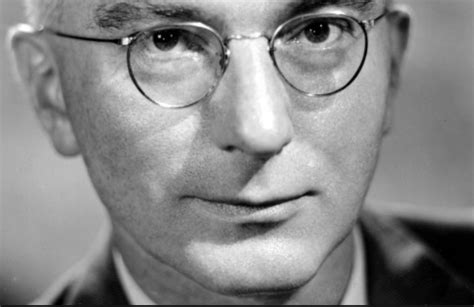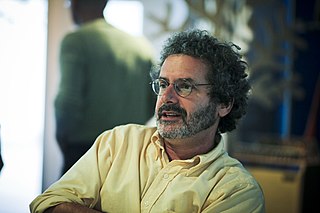Top 585 Linear Equations Quotes & Sayings - Page 10
Explore popular Linear Equations quotes.
Last updated on April 17, 2025.
Why is it that Serge Lange's Linear Algebra, published by no less a Verlag than Springer, ostentatiously displays the sale of a few thousand copies over a period of fifteen years, while the same title by Seymour Lipschutz in the The Schaum's Outlines will be considered a failure unless it brings in a steady annual income from the sale of a few hundred thousand copies in twenty-six languages?
How can you shorten the subject? That stern struggle with the multiplication table, for many people not yet ended in victory, how can you make it less? Square root, as obdurate as a hardwood stump in a pasturenothing but years of effort can extract it. You can't hurry the process. Or pass from arithmetic to algebra; you can't shoulder your way past quadratic equations or ripple through the binomial theorem. Instead, the other way; your feet are impeded in the tangled growth, your pace slackens, you sink and fall somewhere near the binomial theorem with the calculus in sight on the horizon.
The constancies and equivalences adumbrated work havoc with such settled topical blocks as myth and philosophy, natural reason and revelation, philosophy and religion, or the Orient with its cyclical time and Christianity with its linear history. And what is modem about the modem mind, one may ask, if Hegel, Comte, or Marx, in order to create an image of history that will support their ideological imperialism, still use the same techniques for distorting the reality of history as their Sumerian predecessors?
A human life has seasons much as the earth has seasons, each time with its own particular beauty and power. And gift. By focusing on springtime and summer, we have turned the natural process of life into a process of loss rather than a process of celebration and appreciation. Life is neither linear nor stagnant. It is movement from mystery to mystery. Just as a year includes autumn and winter, life includes death, not as an opposite but as an integral part of the way life is made.
What visual information does is it creates priorities. You cannot know with certainty what lies behind something else. There are very few transparent materials in the natural world or the built environment. And so we deal with things superficially, and we deal with what's in front of us, not what's behind our head that we can't see, or to the left or the right. Visualists are often linear and timeline-oriented, whereas the natural condition and the natural way of problem-solving throughout evolution is to be multitasking.
While we bemoan the decline of literacy, computers discount words in favor of pictures and pictures in favor of video. While we fret about the decreasing cogency of public debate, computers dismiss linear argument and promote fast, shallow romps across the information landscape. While we worry about basic skills, we allow into the classroom software that will do a student's arithmetic or correct his spelling.
Lots of people think, well, we're humans; we're the most intelligent and accomplished species; we're in charge. Bacteria may have a different outlook: more bacteria live and work in one linear centimeter of your lower colon than all the humans who have ever lived. That's what's going on in your digestive tract right now. Are we in charge, or are we simply hosts for bacteria? It all depends on your outlook.
People who think achieving success is a linear A-to-Z process, a straight shot to the top, simply aren't in touch with reality. There are very few bona fide overnight success stories. It just doesn't work that way. Success appears to happen overnight because we all see stories in newspapers and on TV about previously unknown people who have suddenly become famous. But consider a sequoia tree that has been growing for several hundred years. Just because a television crew one day decides to do a story about that tree
doesn't mean it didn't exist before.
I mean you're given all these lessons for the unimportant things--piano-playing, typing. You're given years and years of lessons in how to balance equations, which Lord knows you will never have to do in normal life. But how about parenthood? Or marriage, either, come to think of it. Before you can drive a car you need a state-approved course of instruction, but driving a car is nothing, nothing, compared to living day in and day out with a husband and raising up a new human being.
For within livin structures defined by profit, by linear power, by institutional dehumanization, our feelings were not meant to survive. Kept around as unavoidable adjuncts or pleasant pastimes, our feelings were expected to kneel to thought as women were expected to kneel to men. But women have survived. As poets.
Wars make history seem deceptively simple. They provide clear turning points, easy distinctions.: before and after, winner and loser, right and wrong. True history, the past, is not like that. It isn't flat or linear. It has no outline. It is slippery, like liquid; infinite and unknowable, like space. And it is changeable: just when you think you see a pattern, perspective shifts, an alternate version is proffered, a long-forgotten memory resurfaces.
Mathematicians may flatter themselves that they possess new ideas which mere human language is as yet unable to express. Let them make the effort to express these ideas in appropriate words without the aid of symbols, and if they succeed they will not only lay us laymen under a lasting obligation, but, we venture to say, they will find themselves very much enlightened during the process, and will even be doubtful whether the ideas as expressed in symbols had ever quite found their way out of the equations into their minds.
We've lost half the summer sea ice in the Arctic. We've wiped out an enormous percentage of the world's coral reefs. We see huge changes in the planet's hydrology already, the cycles of drought and flood both amped up because warm air holds more water vapor than cold. These things are happening with a one-degree increase and going to two degrees won't be twice as bad, the increase in damage won't be linear, it most certainly will be exponential. So it was precisely the wrong moment to elect Trump.
We all learn best in our own ways. Some people do better studying one subject at a time, while some do better studying three things at once. Some people do best studying in structured, linear way, while others do best jumping around, surrounding a subject rather than traversing it. Some people prefer to learn by manipulating models, and others by reading.
I think it's always interesting when you see a company start moving so quickly - it's like wow, incredible. When a company like Uber starts breaking away, it's not a linear thing. It's exponential. All of a sudden, the guy you know who threw $25,000 at Uber very early on - all the sudden, that $25,000 is $25 million.
Everyone can act. Everyone can improvise. Anyone who wishes to can play in the theater and learn to become 'stage-worthy.' We learn through experience and experiencing, and no one teaches anyone anything. This is as true for the infant moving from kicking and crawling to walking as it is for the scientist with his equations. If the environment permits it, anyone can learn whatever he chooses to learn; and if the individual permits it, the environment will teach him everything it has to teach. 'Talent' or 'lack of talent' have little to do with it.
The only education in grief that any of us ever gets is a crash course. Until Caroline had died I had belonged to that other world, the place of innocence, and linear expectations, where I thught grief was a simple, wrenching realm of sadness and longing that graduallu receded. What that definition left out was the body blow that loss inflicts, as well as the temporary madness, and a range of less straightforward emotions shocking in their intensity.
The inherent non-linearity of the digital allows for more input from others, including the subject and reader as collaborators. The top-down, bedtime-style story is of limited use. A non-linear narrative that allows for increased complexity and depth, and encourages both subject and reader to have greater involvement, will eventually emerge more fully from the digital environment. This, in a sense, is the more profound democratization of media.
Making this movie as a period piece about a period that was very recent in people's minds. I was in Taiwan [during the 1970s], so I hope I did all right. Otherwise, it could be the biggest embarrassment of my life. Also, the story is not linear, it's patchy, like a cubist painting, and there is always the possibility it will not hold together, it will fall apart. The tone is part satire, part serious drama, part tragedy, all mixed together, and it has to hit an emotional core. That's also very scary.
I had a lot of great lakes of ignorance that I was up against, I would write what I knew in almost like islands that were rising up out of the oceans. Then I would take time off and read, sometimes for months, then I would write more of what I knew, and saw what I could see, as much as the story as I could see. And then at a certain point I had to write out what I thought was the plot because it was so hard to keep it all together in my head. And then I started to write in a more linear way.
My focus is to push the medium to be what it truly can be. Something well beyond 360-video, which is where a lot of the initial money has gone…but, of course, it’s not real VR if you don’t have agency. So what I’ve been looking for for 25 years is that undiscovered country between gameplay and linear narrative and the emotional engagement of a cinematic narrative. And that takes a huge combination of interesting technological enablements, as well as an understanding of how to bring a multidisciplinary team on a process that is upside-down the traditional process.
I once thought that if I could ask God one question, I would ask how the universe began, because once I knew that, all the rest is simply equations. But as I got older I became less concerned with how the universe began. Rather, I would want to know why he started the universe. For once I knew that answer, then I would know the purpose of my own life.
Building your "dream life" is filled with things that can feel like the opposite of a dream:
Mistakes
Delays
Starting over
Failure
The building part is actually more of a rebuilding that is a continual process. The building is not linear in nature but far more interesting. You might start a creative dream, take the "next step", and find yourself completely bored, dissatisfied, or just not inspired.
I've always seen process of crafting as part of the thinking process. It really forms the gestation of the work. I'll get an idea; I want to express this idea, sometimes I'll start it, but during the process of making the object - if it's an object or a painting - it changes. It never goes in a linear progression from A to Zed. It's always this kind of circuitous, stumbling, groping in the dark kind of process of evolving.
Consider paint a film of light reflecting/absorbing material, and a colored paint a material which gives a particular, characteristic transmission of light via differential absorption and reflection. Call this reflected quality 'luminance' and measure it in millilamberts. This measure is as real and present as height, breadth, depth; and I find the phenomenon equally sumptuous and convincing. . . . Painted light, not color, not form, not perspective, or line, not image, or words, or equations, is painting. I make paintings which do not represent light, they are light.
Raymond Hendler exhibited a group of abstract paintings that displayed rare high spirits. Using a great deal of fresh white, Hendler devised extremely simple symbols which he dispersed felicitously on his shining grounds. These bright, often linear hieroglyphs serve both as pictorial animators-they often flow in winding patterns or like fluent handwriting-and as references to the plentitude of the artist's existence. Gardens and sky and human joy are read in these exceedingly compressed forms.
There are certain things that I'll hear about and that I think will make a great book and I put it in a file. Sometimes it's a situation that interests me, and I don't even realize what I'm trying to say about it until I get closer to it. Sometimes the book after that I've written 125 pages of, and I can tell you what the book is after that. I just sort of have a linear progression, but more than anything, the topics land in your lap. I don't feel that I go out searching for them.
Tell me it's never been done. Because the only real laws in this world-the only things we really know-are the two postulates of relativity, the three laws of Newton, the four laws of thermodynamics, and Maxwell's equation-no, scratch that, the only things we really know are Maxwell's equations, the three laws of Newton, the two postulates of relativity, and the periodic table. That's all we know that's true. All the rest are man's laws
The place didn't look the same but it felt the same; sensations clutched and transformed me. I stood outside some concrete and plate-glass tower-block, picked a handful of eucalyptus leaves from a branch, crushed them in my hand, smelt, and tears came to my eyes. Sixty-seven-year-old Claudia, on a pavement awash with packaged American matrons, crying not in grief but in wonder that nothing is ever lost, that everything can be retrieved, that a lifetime is not linear but instant. That, inside the head, everything happens at once.
I was thinking about time, how on a movie set the shot is maintained in the same time no matter how many takes and hours pass. Reflectors and lights are added, footprints are smoothed away, so that there are no telltale clues as the day wears on. When the shot is finished and the plugs are pulled, time seems to leap forward in a matter of seconds. Perhaps making movies is a step toward being able to move backward and forward and in and out of linear time.
Just by studying mathematics we can hope to make a guess at the kind of mathematics that will come into the physics of the future... If someone can hit on the right lines along which to make this development, it may lead to a future advance in which people will first discover the equations and then, after examining them, gradually learn how to apply them... My own belief is that this is a more likely line of progress than trying to guess at physical pictures.
When you step outside of school and have to teach yourself about life, you develop a different relationship to information. I've never been a purely linear thinker. You can see it in my rhymes. My mind is always jumping around, restless, making connections, mixing and matching ideas, rather than marching in a straight line. That's why I'm always stressing focus. My thoughts chase each other from room to room in my head if I let them, so sometimes I have to slow myself down.
A tobacco industry has been a fairly linear and predictable industry. You know what's going to happen every year. You know from time to time you are going to have a tax increase, you are going to have regulatory restriction, but, as it applies to everybody, I think we are doing very well. But now it's much more technology-driven. Competitors other than our traditional competitors can come in, whether legitimate or fly-by-night ones, and you have to anticipate all those things. The whole organization has to gear up to this new reality and these new competitive rules around it.
Modern anthropology ... opposes the utilitarian assumption that the primitive chants as he sows seed because he believes that otherwise it will not grow, the assumption that his economic goal is primary, and his other activities are instrumental to it. The planting and the cultivating are no less important than the finished product. Life is not conceived as a linear progression directed to, and justified by, the achievement of a series of goals; it is a cycle in which ends cannot be isolated, one which cannot be dissected into a series of ends and means.
I feel badly for them, not sorry, but badly, because I think they've been given poor breaks and difficult, not sufficient opportunity to be who they are and sort of put into that straitjacket with the tie, and all of the things that is really built like a straitjacket when you look at it, and tied up in a sort of a way where their purpose had to be slimmed down to just certain things, and function pared down to the linear, and it is very difficult for men.
The reaction against your own thought in itself lends life to thought. How this reaction is born is hard to describe, because it identifies with the very rare intellectual tragedies. The tension, the degree and level of intensity of a thought proceeds from its internal antinomies, which in turn are derived from the unsolvable contradictions of a soul. Thought cannot solve the contradictions of the soul. As far as linear thinking is concerned, thoughts mirror themselves in other thoughts, instead of mirroring a destiny.
I visited New York in '63, intending to move there, but I noticed that what I valued about jazz was being discarded. I ran into `out-to-lunch' free jazz, and the notion that groove was old-fashioned. All around the United States, I could see jazz becoming linear, a horn-player's world. It made me realize that we were not jazz musicians; we were territory musicians in love with all forms of African-American music. All of the musicians I loved were territory musicians, deeply into blues and gospel as well as jazz.
There is a huge set of consequences that start stacking up as you approach the end-game. And
even in terms of the ending itself, it continues to break down to
some very large decisions. So it's not like a ****c game ending
where everything is linear and you make a choice between a few things
- it really does layer in many, many different choices, up to the
final moments, where it's going to be different for everyone who
plays it.
In this acausal world, scientists are helpless. Their predictions become postdictions- Their equations become justifications, their logic, illogic. Scientists turn reckless and mutter like gamblers who cannot stop betting. Scientists are buffoons, not because they are rational but because the cosmos is irrational. Or perhaps it is not because the cosmos is irrational but because they are rational. Who can say which, in an acausal world?
If it is possible to have a linear unit that depends on no other quantity, it would seem natural to prefer it. Moreover, a mensural unit taken from the earth itself offers another advantage, that of being perfectly analogous to all the real measurements that in ordinary usage are also made upon the earth, such as the distance between two places or the area of some tract, for example. It is far more natural in practice to refer geographical distances to a quadrant of a great circle than to the length of a pendulum.
All that the posture of skepticism accomplishes is to freeze the ego in an ignorantist poverty that never stretches or diversifies its resources of imagination or understanding. Any uncultured cretin can close his eyes and try to reduce the issues down to linear simplisms and say, "I am doubting, I am proving my magisterial or sovereign control over my own mind." Doubt is a useful and significant test of one's critical powers, but by itself it bears little if any significant cultural charge of enlightenment or satori; indeed it is the very opposite kind of thing.
Our federal income tax law defines the tax y to be paid in terms of the income x; it does so in a clumsy enough way by pasting several linear functions together, each valid in another interval or bracket of income. An archeologist who, five thousand years from now, shall unearth some of our income tax returns together with relics of engineering works and mathematical books, will probably date them a couple of centuries earlier, certainly before Galileo and Vieta.
Language is inherently not concerned with logic. As an expression of the psychological activities of humankind, it simply follows a linear process as it seeks actualisation. Moreover, it does not obey the objective concepts of time and space that belong to the physical world. When the discussion of time and space is imported into linguistic art from scientific aims and research methods, that linguistic art is entirely reduced to trifling pseudo-philosophical issues.
For a smart material to be able to send out a more complex signal it needs to be nonlinear. If you hit a tuning fork twice as hard it will ring twice as loud but still at the same frequency. That's a linear response. If you hit a person twice as hard they're unlikely just to shout twice as loud. That property lets you learn more about the person than the tuning fork.












































